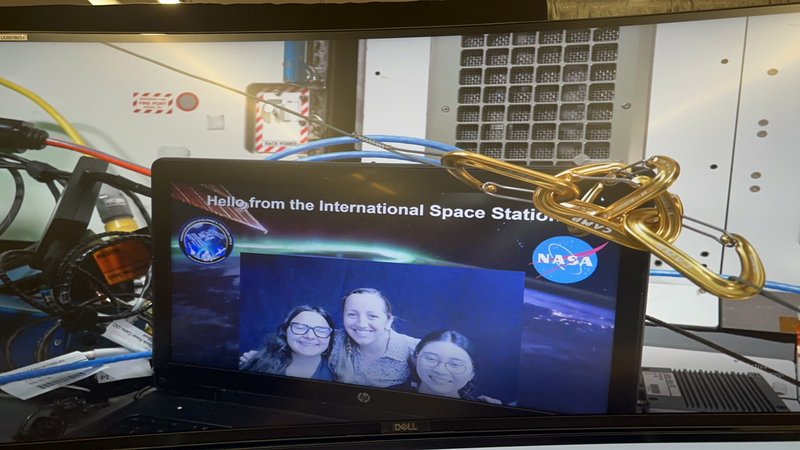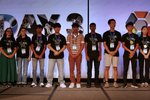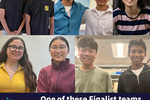Genes in Space Selects Winning Student-Designed Experiment, Bound for the International Space Station
- Isabelle Chuang and Julia Gross, from New York, recognized in research competition
- Research will be the 12th Genes in Space student experiment performed by astronauts aboard the International Space Station
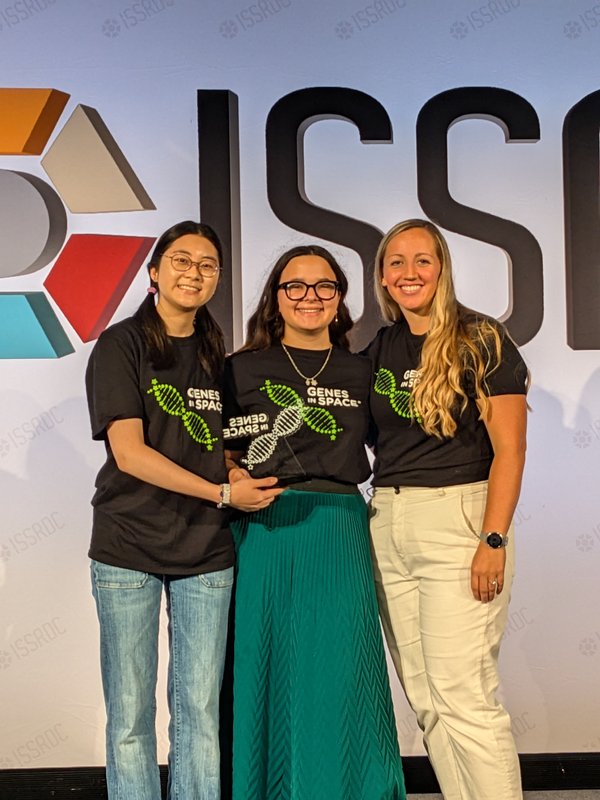
Winners Isabelle Chuang (left) and Julia Gross (center) with their Harvard Graduate Student Mentor Kayleigh Ingersoll
Boston, Aug. 1, 2024 — Isabelle Chuang and Julia Gross, high school seniors from The Nightingale-Bamford School in New York, NY, have been named the national winners of the Genes in Space competition, a biology-based research competition co-founded by Boeing’s Space Exploration division and miniPCR bio. The announcement was made today at the International Space Station (ISS) Research and Development Conference in Boston, Massachusetts. The students’ groundbreaking experiment will be conducted by astronauts aboard the space station in the coming year.
The Genes in Space contest invites students in grades 7 through 12 to design biology experiments that address real-world challenges of space exploration. This year, the competition received submissions from 231 schools across 38 states, representing the widest reach in program history and five student Finalist teams presented their ideas to a judging panel composed of space and science professionals.
“As the co-founder of Genes in Space, Boeing is proud to inspire and support the next generation of scientists and innovators,” said Scott Copeland, director, Boeing ISS Research Integration. “Allowing students the opportunity to use the world’s premier microgravity laboratory for their own research is what makes this competition so special.”
Gross and Chuang’s experiment was selected from a competitive field of 681 submissions from 945 students. Their experiment proposes to use phages, viruses that attack bacteria, as therapeutic agents to combat microbial infections in space.
“I really hope that our experiment can advance the way that people can be medicated and fight off bacteria in space,” said Gross, “As we look into long-term space travel and the risks that astronauts are already under in enclosed environments, it’s a really important field to be putting our focus into.”
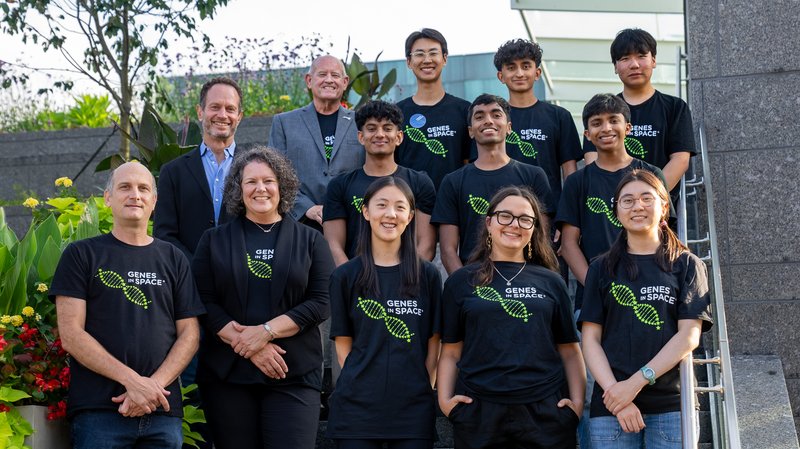
The 2024 Genes in Space Finalists - photo credit: Sam Evans
The other finalist proposals that stood out for their potential to positively impact the future of space travel include:
- Sean Lee, 15, and Vedant Mehta, 16, from Lambert High School in Suwanee, Georgia, whose research sought to detect airborne silicone using a fluorescent biosensor system.
- Aarush Tutiki, 16, and Dhruv Grandhe, 17, from Albuquerque Academy in Albuquerque, New Mexico, whose topic focused on nanoparticle-mediated siRNA delivery to minimize bone density loss in space.
- Megan Chiu, 16, from Bryn Mawr School in Baltimore, Maryland, whose project aimed to use liquid-liquid phase separation as a potential method to combat neurodegeneration and brain aging for astronauts.
- Minjun Kim, 17 and Daniel Syed, 15, from International Academy Central in Bloomfield Hills, Michigan who proposed to monitor the rate of fibrin clot development in human plasma under microgravity conditions.
This will be the 12th Genes in Space student experiment performed by astronauts aboard the orbiting laboratory, in addition to two program technology demonstration missions. Genes in Space was founded in 2015 as a collaboration between Boeing and miniPCR bio. Since then, the ISS National Laboratory and New England Biolabs have sponsored the program. Previous contest winners have explored phenomena ranging from DNA repair to immune dysfunction and have achieved significant experimental milestones, including the first use of CRISPR/Cas9 gene editing in space.
